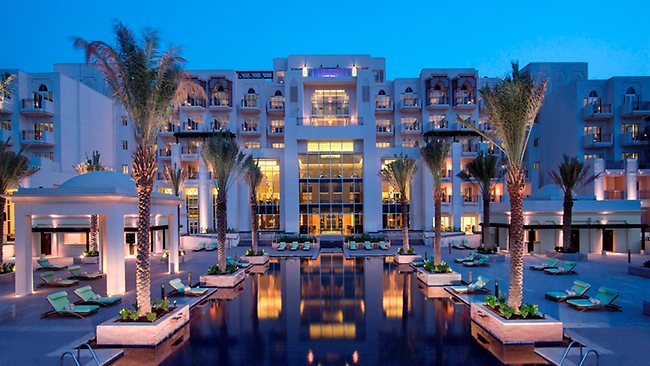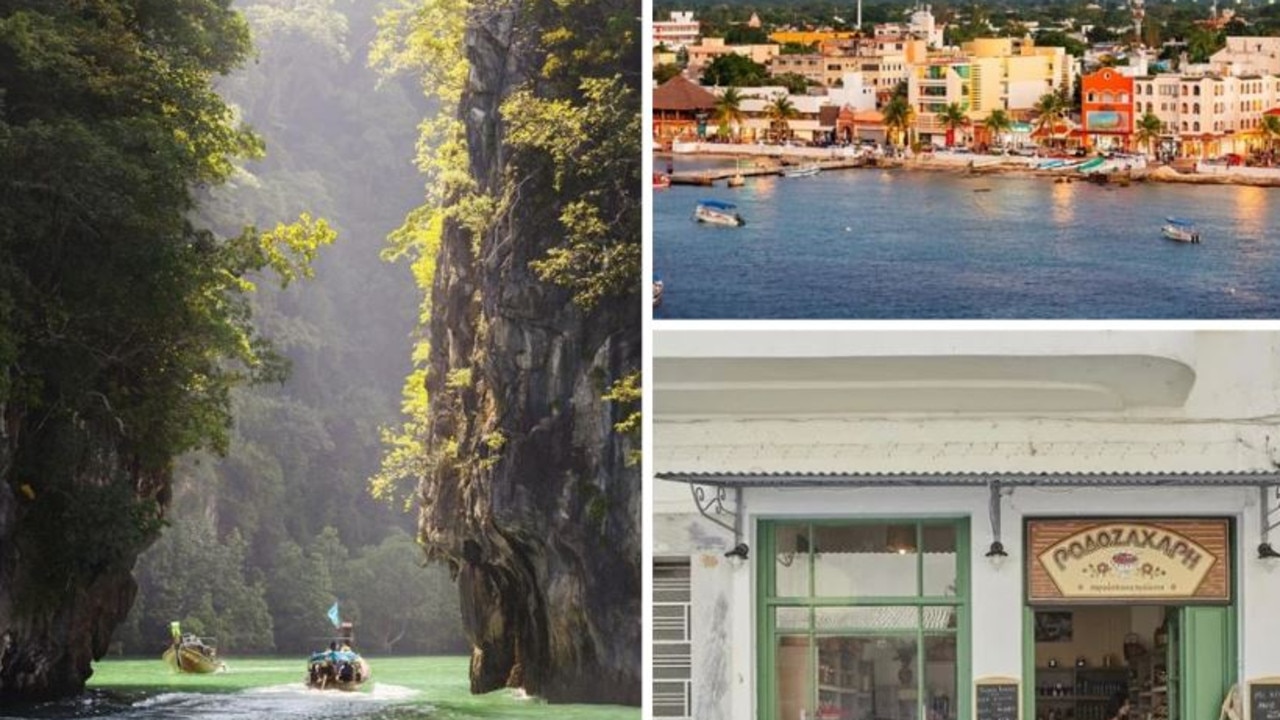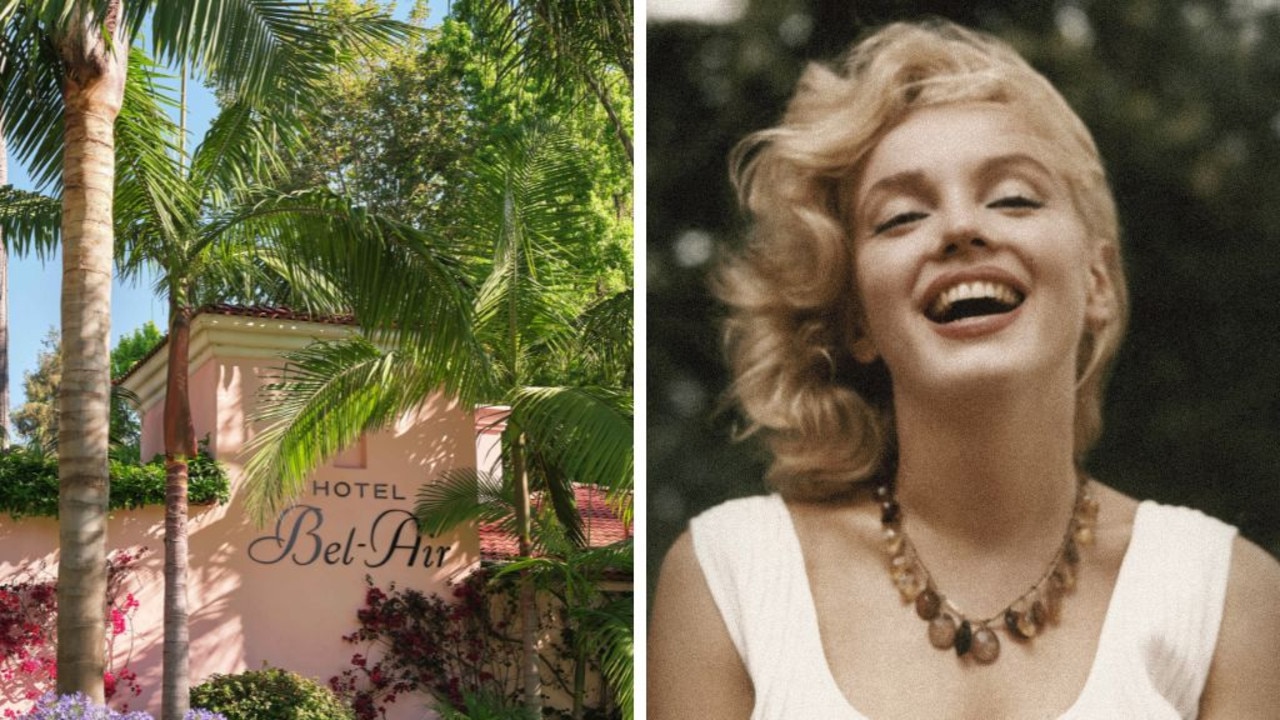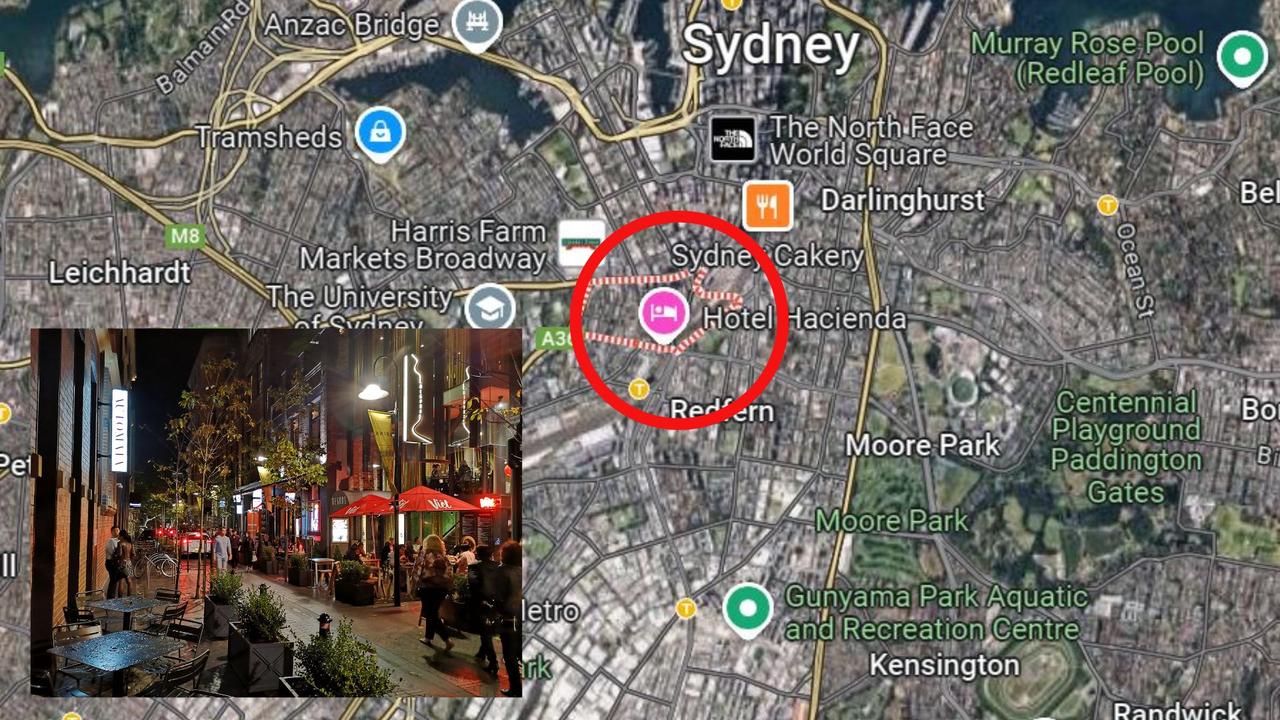A big brunch in Abu Dhabi
ANGELA Saurine explores the international city where expats love to brunch on a Friday.

FRIDAY brunch is somewhat of an institution among Abu Dhabi's expat community.
While the city's large Muslim population is praying and relaxing on what is the holiest day of the week, the Westerner residents are flocking to 5-star hotels to feast.
I tag along to a farewell lunch at the Fairmont Bab Al Bahr for a couple returning to Perth with a friend who has been living in the United Arab Emirates capital for the past three years.
My eyes bulge when I see the prawns, oysters, scampi, scallops and salmon on offer at the buffet.
For a set fee you can eat and drink as much as you like for four hours between noon and 4pm.
It is the hottest time of the year, with temperatures around the 50C mark, and it makes sense to be inside in the airconditioning.
I spend the afternoon chatting to expats from Canada, Algeria, Ireland, South Africa and Australia who have all been enticed by the opportunity to earn big money, tax-free in the oil-rich nation.
They are the type of conversations travellers love; everything from cultural differences and languages to the politics of the region, what they miss about life back home and where they plan to live next.
Earlier that day we had gone to see the Sheikh Zayed Grand Mosque, which is a bit like the Taj Mahal of Abu Dhabi. With 82 white domes and more than 1000 columns, the mosque is one of the largest in the world. It can fit more than 40,000 worshippers and boasts a 10m-wide chandelier in the main prayer hall and the world's biggest hand-knotted carpet.
Sheikh Zayed, who was the ruler of the emirate for three decades, is also buried at the site.
Unfortunately, the mosque is closed to non-Muslims on Fridays until after 4.30pm. We had planned to return after brunch, but the crowd is heading to an Irish bar, PJ O'Reillys, and we are in the mood to continue.
The mosque will have to wait for another day.
The post-brunch crowd from different hotels all seem to descend on PJs on a Friday afternoon, and it is a rowdy affair with the kind of music you'd hear at RSL discos in Australia.
It is great to see people from so many different parts of the world together having a good time.
Abu Dhabi is one of the fastest-growing cities in the world, with more than 200 nationalities among its population of 1.5 million.
From the moment I arrive at the airport I feel as if I am in a real "world city". It's almost as if you can feel the excitement in the air.
From above, the city has a grid-like design, with unusual shaped buildings, and is surrounded by shallow waterways on the edge of the desert.
While Abu Dhabi's past centred around pearl divers, fishing and agriculture, its strategic location in the Arabian gulf and natural resources led to its rise as a shipping port.
Shopping is also one of Abu Dhabi's key drawcards, as anyone who has seen the film Sex and the City 2, which was set in the city, would know.
I arrived in town just after the holy month of Ramadan, when tourists from Saudi Arabia flocked there to shop in the airconditioned malls over the Eid Al Fitr long weekend.
The Grand Prix is also held on its Formula One racetrack each November, with no expense spared.
Abu Dhabi is filled with luxurious hotels, with celebrity chefs from around the world clamouring to open restaurants there.
I stay at the city's newest big 5-star hotel, Eastern Mangroves Hotel and Spa by Anantara. Set alongside a 1.2km-long nature reserve with more than 200 guest rooms and suites, it is simply huge.
When I arrive, I am greeted with palm trees and white pillars at the entrance before being handed a cold towel and a glass of saffron tea and a bowl of dates.
There is a sparkling crystal chandelier in the foyer above a large square water feature and a grand piano.
It takes about 10 minutes to walk to my room along a long corridor, or so it feels.
The hotel is filled with Arabian-style arches, mosaics and timber trellises, with 18-carat gold used in parts. It has several bars, lounges and restaurants, including a signature Thai noshery.
The Ingredients all-day dining restaurant has authentic Emirati dishes, as well as Asian and Arabic food made from organic and fresh seasonal ingredients.
At the Impressions rooftop bar you can sit and admire the view over the mangroves through floor-to-ceiling windows.
The hotel was still under construction when I was there but, when complete, it will include residential apartments, a retail development called Eastern Mangroves Promenade and a 30-berth marina.
The writer was a guest of Etihad and Abu Dhabi Tourism.
Go2
ABU DHABI
Getting there:
Etihad Airways flies to Abu Dhabi from Sydney, Brisbane and Melbourne. Ph 1300 532 215 or see etihad.com
Staying there:
Eastern Mangroves Hotel & Spa by Anantara is 15 minutes' drive from the airport and 10 minutes from the city.
It has several restaurants and bars, two gyms, yoga and Pilates facilities, an Anantara spa, hair and nail salon and infinity pool. Deluxe balcony rooms start from $250 a room, a night, plus a 10 per cent service charge and 6 per cent tourism fee.
See anantara.com
Advice:
Travel insurance expert Cover-More warns that hospitals in Abu Dhabi are expensive and typically only accept payment in US dollars or local credit cards. The cost of an overnight stay in hospital is comparable to the US and prices range from a couple of thousand dollars to tens of thousands of dollars depending on treatment.
Getting around:
There is limited public transport in Abu Dhabi, but taxis are cheap
Doing there:
Shopping, golf, desert tours, visits to Ferrari World or a falcon hospital.
Eating there:
The Fairmont Bab Al Bahr offers brunch each Friday. See fairmont.com/abu-dhabi
If you want to experience traditional fare, the city's first fine dining Emirati restaurant Mezlai, in Emirates Palace, is also worth a visit. See kempinski.com
When to go:
Try to avoid the period from July to September, when it can be extremely hot.
More: abudhabitourism.ae



